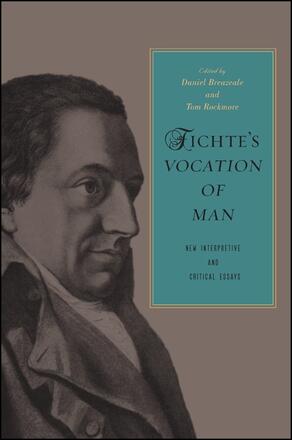
Fichte's Vocation of Man
New Interpretive and Critical Essays
Alternative formats available from:
New perspectives on Fichte’s best known and most popular work.
Description
Written for a general audience during a period of intense controversy in the German philosophical community, J. G. Fichte's short book The Vocation of Man (1800) is both an introduction to and a defense of his philosophical system, and is one of the best-known contributions to German Idealism. This collection of new essays reflects a wide and instructive variety of philosophical and hermeneutic approaches, which combine to cast new light upon Fichte's familiar text. The contributors highlight some of the overlooked complexities and implications of The Vocation of Man and situate it firmly within the intellectual context within which it was originally written, relating it to the positions of Kant, Hegel, Schelling, Schlegel, Jacobi, and others. In addition, the essays relate the text to issues of contemporary concern such as the limits of language, the character of rational agency, the problem of evil, the relation of theoretical knowledge to practical belief, and the dialectic of judgment.
Daniel Breazeale is Professor of Philosophy at the University of Kentucky, Lexington. He is the editor and translator of several volumes of Fichte's writings, including Fichte: Early Philosophical Writings and Introductions to the Wissenschaftslehre and Other Writings. Tom Rockmore is McAnulty College Distinguished Professor and Professor of Philosophy at Duquesne University. He is the author of many books, including Kant and Phenomenology and In Kant's Wake: Philosophy in the Twentieth Century. Together Breazeale and Rockmore have coedited many volumes, including Rights, Bodies and Recognition: New Essays on Fichte's Foundations of Natural Right.
Reviews
"…a welcome addition to the continuously expanding scholarly literature on Fichte. The volume can function as a comprehensive supplement—it contains seventeen essays—to the Vocation and is ideal for classroom use … a rich collection of essays which should be 'must-reading' for philosophers interested in the development of German Idealism and moral agency. " — Review of Metaphysics